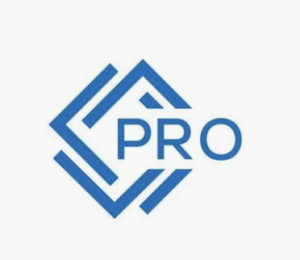How To Make Money With Affiliate Marketing – 6 Steps
We may earn money or products from the companies mentioned in this post.
Updated on the 26 May 2024
Welcome and thanks for visiting my webpage.
Are you interested in finding out how affiliate marketing might bring in money?
One of the best ways to get passive income is to use affiliate marketing to promote products and services and receive payment for each sale that results from a recommendation.
By simplifying the procedure into 6 easy steps, we will make it easier for anyone to launch and succeed in a business in this post.
“In the digital age, affiliate marketing lets individuals and companies profit online by partnering with brands and making personal connections to earn money through sales or referrals.”
But a successful business requires more than signing up for a program, and succeeding in this competitive landscape requires a strategic approach.
In this comprehensive guide, we’ll explain how to leverage the power of partnerships and maximize your investment. We’ll cover six key steps to maximize it.”
Let’s go and find out How To Make Money With Affiliate Marketing

Entrepreneurs, driven by their innate ambition and vision, understand the paramount importance of continuous growth and expansion within their enterprises.
They constantly seek out new opportunities and strategies to propel their businesses forward, recognizing that stagnation is antithetical to success in the dynamic landscape of modern commerce.
One such strategy that entrepreneurs often explore is the pursuit of a second source of income.
Diversifying revenue streams not only mitigates risks associated with dependency on a single source but also opens up avenues for exponential growth.
Entrepreneurs pursue multiple income streams through ventures, partnerships, and investments to strengthen financial resilience and reach their goals faster.
In today’s world, the quest for additional income transcends the realm of entrepreneurship; it is a pursuit shared by individuals from all walks of life.
From freelancers seeking to supplement their earnings to nine-to-five employees striving to improve their financial security, everyone is increasingly attuned to the potential of earning extra money.
The quest for supplementary income is common, driven by goals of financial independence, a comfortable lifestyle, or meeting rising expenses.
In this ever-evolving landscape of economic opportunity, the mantra remains clear: let’s go and find out. Let’s explore new avenues, seize untapped potential, and chart our course towards financial empowerment.
Whether through entrepreneurship, investment endeavors, or innovative side hustles, the journey towards unlocking additional income streams is a voyage of discovery, resilience, and untold possibilities.
So let’s embark on this journey together, fueled by ambition, curiosity, and the unwavering belief that our potential for prosperity knows no bounds.
Income:

In the realm of finance and personal wealth management, income stands as the lifeblood that sustains livelihoods, fuels ambitions, and paves the way for financial freedom.
It encompasses the earnings and gains derived from various sources, ranging from traditional employment salaries to dividends from investments and proceeds from entrepreneurial endeavors.
In today’s interconnected world, the importance of exploring diverse income sources cannot be overstated.
All non-participants—whether they are individuals seeking to augment their earnings or entities aiming to expand their revenue streams—should meticulously examine the potential of each money source available to them.
By diversifying income streams, individuals and businesses can mitigate risks, capitalize on emerging opportunities, and unlock untapped potential for wealth accumulation and financial stability.
This article serves as a comprehensive guide to understanding and harnessing one particular income source: affiliate marketing.
From its inception as a startup venture to its potential for exponential growth, affiliate marketing offers a pathway for individuals and businesses alike to generate passive income and cultivate financial prosperity.
This article explores the fundamentals of affiliate marketing, strategies for growth, and opportunities to boost earnings potential.
With a keen focus on addressing common queries and concerns surrounding affiliate marketing, I hope to provide readers with actionable insights, practical tips, and invaluable resources to navigate this dynamic realm of income generation.
I aim to provide you with the information, resources, and guidance to succeed in affiliate marketing, whether you’re an experienced business owner or an aspiring affiliate marketer.
Together, let’s navigate the intricate pathways of affiliate marketing and unlock the doors to financial prosperity and abundance.
You may like this: How to successfully use WordPress & Google Analytics Now 38 Points
How does Affiliate marketing work?
Here’s a detailed explanation of how affiliate marketing works
Affiliate marketing operates on a simple yet powerful principle: the collaboration between merchants (sellers) and affiliates (promoters) to drive sales and generate revenue.
At its core, affiliate marketing functions as a performance-based model, wherein affiliates are rewarded for their role in driving desired actions, such as sales, leads, or clicks, to the merchant’s products or services.
The process begins with the merchant, who has a product or service to sell but seeks to expand their reach and maximize sales opportunities.
To achieve this, the merchant establishes an affiliate program, wherein they invite individuals or entities (affiliates) to promote their offerings in exchange for a commission on successful sales or conversions.
Affiliates, on the other hand, are individuals or entities with an online presence, such as bloggers, influencers, website owners, or social media users, who possess the ability to reach and engage with a target audience.
These affiliates join affiliate programs relevant to their niche or interests and gain access to unique tracking links, also known as affiliate links, provided by the merchant.
Affiliates strategically integrate their links into content like blog posts, social media, videos, or emails to drive traffic and encourage clicks and purchases.
The merchant may track a referral back to the affiliate when a user clicks on an affiliate link and goes on to accomplish the desired activity, like making a purchase, thanks to the affiliate’s unique tracking code placed in the link.
This tracking mechanism is typically facilitated through cookies or other tracking technologies, which record the user’s activity and attribute the sale or conversion to the respective affiliate.
Upon successful completion of the desired action, the merchant acknowledges the referral and credits the affiliate with a predetermined commission or percentage of the sale value.
This commission serves as the affiliate’s reward for their role in facilitating the transaction and driving revenue for the merchant.
Throughout this process, transparency and trust are essential pillars of affiliate marketing success.
Merchants rely on affiliates to ethically promote products, while affiliates provide genuine recommendations to build credibility and long-term relationships.
In summary, affiliate marketing thrives on collaboration, incentivizing affiliates to promote merchants’ offerings and drive sales, while rewarding them with commissions for their contributions.
Affiliate marketing leverages partnerships, strategic promotion, and performance-based incentives, creating a win-win for merchants, affiliates, and consumers.
Start affiliate marketing now!
Ready to Start Your Path to Financial Freedom and Passive Income?

If so, there’s never been a better time to start affiliate marketing.
Affiliate marketing offers a lucrative way to boost your income, build a sustainable business, or achieve financial independence.
Whether you’re an experienced entrepreneur or passionate about a niche, affiliate marketing offers a low-cost, low-risk entry into online business.
You don’t need to create your own products, manage inventory, or deal with customer service headaches.
Instead, you can leverage existing products or services and earn commissions by promoting them to your audience.
So, how can one begin using affiliate marketing?
Finding your niche or area of interest is the first step.
Choose a topic or industry that you’re passionate about or knowledgeable about, as this will make it easier to create compelling content and connect with your target audience.
Whether it’s fitness, fashion, technology, personal finance, or any other niche, there are affiliate programs available for almost every industry imaginable.
Once you’ve chosen your niche, the next step is to research and join affiliate programs relevant to your audience and content.
Seek out trustworthy vendors who offer top-notch goods or services, reasonable commission rates, and dependable payment and tracking methods.
Popular affiliate networks such as Amazon, Associates, ClickBank, ShareASale and Commission Junction offer a wide range of affiliate programs across various industries, making it easy to find suitable partnerships.
With your affiliate programs selected, it’s time to create valuable content that resonates with your audience and drives engagement.
Whether you prefer blogging, vlogging, podcasting, social media, or email marketing, choose platforms that align with your strengths and preferences.
Focus on providing valuable information, solving problems, and addressing the needs and interests of your audience, rather than simply pushing products or promotions.
Make sure your affiliate links are relevant and valuable to your readers by naturally integrating them into your content.
Disclose your affiliate relationships transparently and authentically, building trust and credibility with your audience.
Monitor your performance metrics, track your results, and refine your strategies based on what works best for your audience and converts effectively.
As you continue to grow your audience and expand your reach, explore opportunities to diversify your income streams and optimize your affiliate marketing efforts.
Consider experimenting with different promotional tactics, exploring new affiliate programs, and scaling your operations as your audience and revenue grow.
Start affiliate marketing now for unlimited earning potential, flexibility, and financial freedom. Seize the opportunity, take action, and begin your journey today!
Affiliate marketing, know-how

Whether you’re a marketer, content creator, or aspiring entrepreneur, affiliate marketing offers a low-barrier entry to earn passive income using your skills and resources.
This arrangement allows individuals, known as affiliates, to earn income by leveraging their online platforms or marketing channels to drive traffic and sales to the products or services of the merchant.
At its core, the affiliate marketing process begins with the affiliate selecting products or services to promote from a merchant’s inventory.
These products are often chosen based on relevance to the affiliate’s niche or audience, as well as factors such as commission rates and conversion potential.
Once the affiliate has identified suitable products or services, they proceed to promote them through various marketing channels, such as websites, blogs, social media platforms, email newsletters, or video content.
This involves using unique affiliate links in content to track user interactions and attribute sales or leads to the affiliate.
This commission serves as compensation for the affiliate’s role in driving the acquisition or sale, and it is usually calculated as a percentage of the total sale value or a fixed amount per conversion.
Affiliate marketing allows individuals to monetize their presence online, generate passive income, and optimize campaigns for effectiveness.
In addition to traditional product promotions, affiliate marketing encompasses a wide range of acquisition types, including paid Internet traffic, app downloads, free trials, and more.
This diversity allows affiliates to explore different revenue streams and adapt their strategies based on market trends and consumer behavior.
Furthermore, accessible affiliate networks and platforms play a crucial role in reducing the barriers to entry for aspiring affiliates.
These networks provide a centralized marketplace where affiliates can discover and join multiple affiliate programs across various industries, access marketing materials and resources, track performance metrics, and receive timely payments.
Overall, affiliate marketing presents a performance-based opportunity for individuals to monetize their online platforms, leverage their marketing skills, and generate passive income streams.
Affiliate marketing offers lucrative earnings, scalability, and flexibility for those who invest time and effort into mastering it.
What is an Affiliate Marketer

An Affiliate Marketer is an individual or entity who participates in affiliate marketing programs to earn income by promoting products or services on behalf of merchants or advertisers.
They drive traffic and sales by leveraging their online presence, marketing skills, and audience engagement.
Affiliate marketers typically join affiliate programs offered by merchants or advertisers that align with their niche, interests, or target audience.
These programs provide affiliates with access to a range of promotional materials, such as unique tracking links, banners, widgets, and product feeds, to facilitate their marketing efforts.
Once enrolled in an affiliate program, affiliate marketers undertake various promotional activities to attract potential customers and encourage them to make a purchase or perform a desired action.
This includes creating content, sharing recommendations on social media, using email marketing, and running paid ads.
Affiliate marketers are compensated for their promotional efforts based on a performance-based model. Instead of receiving a fixed salary or hourly wage, affiliates earn commissions for each conversion they generate.
A conversion may vary depending on the specific goals of the affiliate program and could include actions such as sales, leads, clicks, app downloads, or sign-ups.
The commission structure for affiliate marketers varies widely across different affiliate programs and industries. Commissions are typically calculated as a percentage of the total sale value or a fixed amount per conversion.
Additionally, some affiliate programs offer tiered commission structures, performance bonuses, or recurring commissions for ongoing customer referrals.
To succeed as an affiliate marketer, individuals must meet the fundamental standards set forth by the affiliate programs they join.
This includes following program terms, ethical marketing, transparent disclosure of affiliate relationships, and maintaining the merchant’s brand integrity.
By marketing strategically, meeting program standards, and providing value, affiliate marketers can earn income and form lasting partnerships in the industry.
Is affiliate marketing worthwhile?

Affiliate marketing, given its widespread adoption and proven track record, stands as a highly worthwhile endeavor for individuals and businesses alike.
With the digital landscape continuing to expand and evolve, affiliate marketing presents a lucrative opportunity to harness the power of partnerships, drive sales, and generate passive income streams.
The sheer scale of affiliate marketing’s impact is evident in its projected growth trajectory.
According to Statistics, the affiliate marketing industry is poised to reach a staggering $8.2 billion by 2022, underscoring its significance and potential within the broader realm of digital commerce.
This exponential growth not only highlights the increasing popularity of affiliate marketing but also signifies its viability as a lucrative revenue stream for affiliates and merchants alike.
One of the most compelling aspects of affiliate marketing is its low barrier to entry and high income potential.
Unlike traditional businesses, affiliate marketing requires minimal upfront costs and allows gradual scaling.
With little to no overhead expenses, affiliates can leverage their existing online platforms or marketing channels to promote products or services and earn commissions on successful sales or conversions.
Affiliate marketing offers benefits beyond profit, such as fostering collaboration, community engagement, and brand advocacy.
By partnering with reputable merchants and promoting high-quality products or services, affiliates can enhance their credibility, build trust with their audience, and position themselves as valuable resources within their niche.
Another compelling aspect of affiliate marketing is its simplicity and accessibility. Unlike traditional business models, which may require specialized skills or extensive training, affiliate marketing is relatively straightforward and easy to grasp.
Affiliates can use user-friendly platforms and marketing tools to streamline operations, track metrics, and optimize campaigns for maximum effectiveness.
Whether it’s e-books, online courses, software subscriptions, or digital downloads, affiliates have the flexibility to choose products that resonate with their audience and align with their interests or expertise.
One of the most compelling advantages of affiliate marketing is the elimination of traditional business burdens.
Unlike conventional business models that require entrepreneurs to create, support, or deliver products or services, affiliates simply act as intermediaries between merchants and consumers.
This hands-off approach allows affiliates to focus on what they do best—marketing and promotion—while leaving the product creation and customer support responsibilities to the merchants.
In summary, affiliate marketing is unequivocally worthwhile, offering a plethora of opportunities for individuals and businesses to capitalize on the digital economy, drive revenue, and achieve financial independence.
Affiliate marketing, with its growth and low cost, offers a hands-off and lucrative venture for entrepreneurial success seekers.
Security
In affiliate marketing, security is crucial for both affiliates and merchants.
Ensuring the safety of sensitive data, such as personal information and financial transactions, is essential to maintaining trust and credibility.
Affiliates need to implement secure hosting solutions and use encryption technologies to protect user data.
Regularly updating software and plugins to patch vulnerabilities helps prevent cyberattacks. Strong authentication methods, like two-factor authentication, can prevent unauthorized access.
For merchants, secure payment gateways are necessary to handle affiliate commissions safely.
By prioritizing security, both parties can protect their interests and foster a trustworthy environment for affiliate marketing.
Shortened Sentence
Affiliates must secure their online platforms, financial transactions, and sensitive data in the digital landscape to protect against threats.
One of the key aspects of security in affiliate marketing is the protection of affiliate network enrollment processes.
While many affiliate networks offer free enrollment to affiliates, this accessibility can sometimes be exploited by malicious actors seeking to engage in fraudulent activities.
Affiliate networks use security measures like identity verification, fraud detection, and compliance checks to prevent fraudulent activities and verify affiliate legitimacy.
Furthermore, affiliates must prioritize security measures to safeguard their online platforms, such as websites, blogs, or social media accounts, from potential cyber threats and attacks.
This includes secure hosting, data encryption, regular software updates, and strong authentication methods.
In addition to protecting against external threats, affiliates must also be vigilant in ensuring the security of their financial transactions and earnings.
This includes using secure payment gateways, keeping accurate earnings records, and implementing proper accounting practices.
While affiliate marketing offers the allure of generating passive income, it’s essential to recognize that success in affiliate marketing requires diligent effort and ongoing commitment.
To effectively drive traffic and conversions, affiliates must devote time and resources to producing content of the highest caliber, cultivating relationships with their audience, and refining their marketing methods.
Despite the labor-intensive nature of affiliate marketing, the potential rewards can be substantial.
By leveraging their online platforms, marketing skills, and industry expertise, affiliates have the opportunity to earn handsome commissions from their promotional efforts.
Through niche content, targeted ads, or merchant partnerships, affiliates can maximize earnings and achieve financial independence.
By implementing robust security measures, affiliates can safeguard against potential threats and vulnerabilities, ensuring the integrity and reliability of their affiliate marketing endeavors.
With dedication and best practices, affiliates can navigate the market securely, capitalize on opportunities, and achieve financial success.

Pro Tips
I E Robins
Affiliate marketing is not a way to become wealthy overnight.
You have to Build a Brand Name so People will Trust you.
The money comes Last.
Scalability
Affiliate marketing’s scalability allows affiliates to increase income and grow businesses without hiring more staff or resources.
Affiliate marketing enables individuals to boost earnings without the need for expanding operations, hiring more employees, or investing in infrastructure.
Furthermore, the scalability of affiliate marketing extends beyond passive income generation to include the ability to launch new products or promotions seamlessly.
Affiliates have the flexibility to diversify their promotional efforts, experiment with different products or services, and capitalize on emerging trends or market opportunities to maximize their earnings potential.
For affiliates, scalability means more than just increasing revenue; it also encompasses the ability to adapt and evolve their strategies to meet changing market demands and consumer preferences.
Affiliates can achieve long-term success by expanding into new niches, exploring various marketing channels, and collaborating with more merchants or advertisers.
Furthermore, the scalability of affiliate marketing knows no boundaries, whether geographical or physical.
Affiliates can reach a global audience through online platforms and digital marketing channels, allowing them to tap into new markets and audiences with minimal additional effort or resources.
In summary, scalability is a fundamental aspect of affiliate marketing, offering affiliates the ability to grow their income streams and expand their businesses without the need for additional staff or resources.
Affiliate marketing offers passive income, easy product integration, and endless growth, making it a scalable and profitable venture for dedicated individuals.
Trust builds good Affiliate Marketing. Only use advertises items and services you use or recommend. A good marketer invests in a product or pastime.
Affiliate marketing inside

Within the realm of affiliate marketing, a diverse array of individuals, ranging from webmasters and bloggers to social media influencers, participate in promoting affiliate links as part of their revenue-generating strategies.
These affiliates leverage their online platforms and digital presence to strategically integrate affiliate links into their content, effectively turning their platforms into valuable marketing channels for merchants and advertisers.
Webmasters, often skilled in website development and online marketing, play a crucial role in affiliate marketing by optimizing their websites to attract organic traffic and engage visitors with relevant content.
Webmasters can earn commissions by strategically placing affiliate links on their websites and generating sales through them.
Social media users, including influencers, content creators, and micro-influencers, harness the vast reach and engagement potential of social media platforms to promote affiliate links to their followers.
Whether through sponsored posts, product reviews, or affiliate link sharing, social media users can monetize their influence and earn commissions for driving sales or conversions through their affiliate links.
Regardless of the platform or medium used, the fundamental principle of affiliate marketing remains the same.
Affiliates are compensated when someone uses their affiliate link to make a purchase or perform a desired action.
The compensation, usually a commission based on sales value or a fixed amount per conversion, rewards affiliates for driving traffic and generating revenue for the merchant.
Affiliate marketing relies on affiliates linking merchants to customers through promotions. Using online platforms and marketing skills, affiliates drive sales, expand brand reach, and fuel revenue growth in digital commerce.
6 Steps

A Step-by-Step Guide to Successful Affiliate Marketing: 6 Essential Steps
1. Choose Your Niche
Start by selecting a niche that you’re passionate about or have knowledge in. This will assist you in producing content that establishes trust and connects with your audience.
Your niche should also have good market demand and affiliate programs available. Research trends and competition to ensure there is potential for profitability.
2. Find Affiliate Programs
After selecting your specialty, search for affiliate programs that provide goods or services that your target market would be interested in.
You can join affiliate networks like Amazon Associates, ClickBank, or Commission Junction, or sign up for individual company programs.
Evaluate the commission rates, cookie durations, and payment terms to choose the best programs for your needs.
3. Create Quality Content
Content is king in affiliate marketing. Create high-quality, engaging, and informative content that provides value to your audience.
This could take the form of videos, blog entries, product reviews, or instructions.
To preserve openness and credibility, make sure your material includes your affiliate links in a natural and moral manner. You should also constantly declare your affiliate ties.
4. Drive Traffic to Your Content

You must increase traffic to your content in order to receive commissions.
Employ a range of marketing techniques, including paid advertising, social media marketing, email marketing, and search engine optimization (SEO).
Focus on building a loyal audience by providing consistent and valuable content.
5. Optimize and Track Performance
Monitor the performance of your affiliate links and content. Use analytics tools to track clicks, conversions, and earnings.
Identify which strategies are working and which need improvement.
Split test different approaches to see what resonates best with your audience, and continuously refine your tactics for better results.
6. Scale Your Efforts
Once you start seeing success, scale your efforts to maximize your earnings. This could involve expanding into new niches, creating more content, or exploring additional marketing channels.
Consider automating parts of your process or outsourcing tasks to free up time for strategic growth activities.
By following these steps, you can build a successful affiliate marketing business and enjoy the benefits of passive income and financial independence.
It’s important to note that commission rates and payment structures vary depending on the company and offer involved.
Some affiliate programs offer tiered commission rates based on performance metrics, while others may provide bonuses or incentives for promoting specific categories or events.
Additionally, certain affiliate programs may pay flat fees per sale or offer special promotions, such as discounts or coupons, to incentivize affiliates and drive sales.
As an affiliate marketer, understanding these commission structures and leveraging promotional opportunities can help maximize your earnings potential and optimize your affiliate marketing efforts.
Is Affiliate Marketing Easy?

Affiliate marketing is often portrayed as an effortless path to financial success, but the reality is far from simple.
While affiliate marketing offers the potential for lucrative earnings and passive income streams, achieving success in this field requires dedication, hard work, and strategic execution.
Similar to running a small business, affiliate marketing demands significant effort and commitment to yield meaningful results.
Affiliates must invest time and resources into various aspects of their affiliate marketing endeavors, including content creation, audience engagement, promotional strategies, and performance tracking.
Creating high-quality content that resonates with your target audience is essential for affiliate success.
Whether it’s blog posts, videos, social media content, or email newsletters, affiliates must consistently produce valuable and engaging content that attracts and retains their audience’s attention.
Moreover, effective affiliate marketing requires a strategic approach and step-by-step guidance.
Affiliates must choose the right products, optimize marketing strategies, and track performance metrics to measure success and improve.
While affiliate marketing offers the allure of passive income and flexible work hours, it’s important to recognize that achieving success in this field is not a quick or easy endeavor.
Affiliates must be prepared to invest time, effort, and resources into building their affiliate marketing business and adapting to the ever-changing landscape of digital commerce.
In summary, while affiliate marketing presents opportunities for financial freedom and entrepreneurial success, it is not without its challenges.
Like any business venture, affiliate marketing requires dedication, perseverance, and a willingness to learn and adapt.
With the right mindset, strategy, and guidance, affiliates can overcome obstacles and achieve success in the dynamic and competitive world of affiliate marketing.
Platform:

When delving into the realm of affiliate marketing, one of the crucial decisions affiliates face is selecting the platform on which they will promote products or services.
This choice largely depends on the affiliate’s target audience, niche, and marketing strategy.
Affiliates have a myriad of options when it comes to platforms, ranging from websites and blogs to social media networks and email newsletters.
The first step in establishing a successful affiliate marketing platform is determining which firm or merchant’s products or services align with your audience’s interests and preferences.
This strategic decision lays the foundation for your affiliate marketing efforts and dictates the type of content you will create and the platform you will use to promote it.
Social media platforms have emerged as powerful tools for affiliate marketers to reach and engage with their target audience.
Platforms like Facebook, Instagram, Twitter, LinkedIn, and Pinterest offer affiliates vast opportunities to showcase products, share recommendations, and drive traffic to affiliate links.
Affiliate marketers can leverage the inherent virality and shareability of social media content to expand their reach, attract new followers, and drive conversions.
Whether through sponsored posts, influencer collaborations, or organic content creation, affiliates can harness the power of social media to connect with their audience on a personal level and inspire action.
In today’s digitally connected world, the possibilities for affiliate marketing platforms are virtually endless.
With the rise of e-commerce, online shopping, and digital content consumption, affiliate marketers have access to a vast array of products, services, and affiliate programs across various industries and niches.
From niche-specific websites and blogs to popular social media platforms and email marketing campaigns, affiliate marketing thrives in today’s digital landscape.
Affiliates have the flexibility to choose platforms that align with their strengths, preferences, and audience demographics, allowing them to create personalized, engaging content that drives results.
In summary, the success of affiliate marketing hinges on selecting the right platform to reach and engage with your target audience effectively.
Affiliate marketers can showcase products, share recommendations, and drive conversions through websites, blogs, social media, and email marketing.
Discussion

- Discussion sites offer a lucrative platform for affiliate marketing due to their engaged and targeted audiences.
- Affiliates strategically evaluate products or services to promote on discussion sites based on their relevance to the site’s theme or topic.
- By providing valuable insights, recommendations, or reviews, affiliates aim to acquire a following within discussion communities.
- Engaging with users on discussion sites allows affiliates to build trust, credibility, and authority, enhancing their influence and effectiveness as marketers.
- Affiliates leverage the interactive nature of discussion sites to foster conversations, address user queries, and provide tailored recommendations to their audience.
- Successful affiliate marketing on discussion sites requires authenticity, transparency, and a genuine desire to add value to the community.
- Affiliates may employ various tactics, such as creating compelling content, participating in discussions, or offering exclusive deals or discounts, to attract and retain followers on discussion sites.
- Building a loyal following on discussion sites can lead to increased referral traffic, higher conversion rates, and ultimately, greater affiliate earnings for marketers.
List of Discussion Sites:
- Reddit: Reddit is one of the largest and most popular discussion platforms on the internet, featuring a wide range of communities (subreddits) dedicated to various topics, interests, and hobbies.
- Quora: Quora serves as a platform for asking questions, sharing knowledge, and engaging in discussions on a diverse array of topics, making it a valuable resource for affiliate marketers seeking to connect with an engaged audience.
- Stack Overflow: While primarily known as a Q&A platform for developers and programmers, Stack Overflow hosts discussions and community forums where users can seek advice, share insights, and collaborate on technical topics.
- XDA-Developers: XDA-Developers is a community-driven forum focused on mobile device development, customization, and hacking, making it an ideal platform for affiliates targeting tech-savvy audiences interested in smartphones and gadgets.
- GameSpot: GameSpot features forums and community discussions related to video games, gaming news, reviews, and discussions, offering opportunities for affiliates in the gaming industry to engage with an enthusiastic and dedicated audience.
Final Thoughts:

Engaging with users on discussion sites like Reddit, Quora, Stack Overflow, XDA-Developers, and GameSpot can be a valuable strategy for affiliate marketers seeking to connect with targeted audiences, build credibility, and drive traffic to their affiliate links.
Each discussion site offers unique opportunities and challenges, so it’s essential for affiliates to understand the dynamics of each platform and tailor their strategies accordingly to maximize their effectiveness and achieve their affiliate marketing goals.
Buy more, earn more

Buy more, earn more. Events and workshops:
- Events and workshops centered around the theme “Buy more, earn more” offer valuable opportunities for affiliate marketers to expand their knowledge, skills, and networks in the field of affiliate marketing.
- These events often feature expert speakers, industry leaders, and successful affiliate marketers who share their insights, strategies, and best practices for maximizing earnings and achieving success in affiliate marketing.
- Affiliates attending such events can gain valuable insights into emerging trends, innovative strategies, and effective techniques for driving traffic, increasing conversions, and maximizing affiliate commissions.
- Lecturers and speakers at these events play a crucial role in providing attendees with practical guidance, actionable advice, and real-world examples to help them succeed in affiliate marketing.
- Affiliates can leverage these events as opportunities to network with fellow marketers, exchange ideas, collaborate on projects, and forge mutually beneficial partnerships.
- By participating in affiliate partnerships facilitated at these events, lecturers can extend their reach, broaden their audience, and increase their earning potential through collaborative promotional efforts and shared revenue opportunities.
- Additionally, lecturers can enhance their credibility, authority, and influence within the affiliate marketing community by sharing their expertise, sharing success stories, and offering valuable insights and guidance to aspiring affiliates.
- Overall, events and workshops focused on “buy more, earn more” provide affiliates and lecturers alike with invaluable opportunities to learn, grow, and succeed in the dynamic and competitive landscape of affiliate marketing.
Affiliate-Marketing Success
Achieving success in affiliate marketing hinges on authenticity and cultivating a loyal audience.
By establishing trust and credibility with your audience, you can effectively promote affiliate products or services and drive conversions.
Carefully consider the platform and techniques you employ in your affiliate marketing efforts.
Whether you choose to leverage social media, email marketing, content creation, or other channels, selecting the right platform and employing effective techniques can significantly impact your success as an affiliate marketer.
Adapt your approach based on the preferences of your audience and the dynamics of the platform you’re using to maximize your affiliate marketing success.
Master which platforms?

Utilize marketing tools to create compelling content that resonates with your audience.
Whether it’s social media management tools, email marketing platforms, or content creation software, leveraging the right tools can streamline your efforts and enhance the quality of your content.
Engage with your audience consistently to cultivate a loyal following.
By fostering meaningful interactions and building relationships with your audience, you can increase engagement, boost brand awareness, and ultimately drive more sales through your affiliate links.
Specialize in specific platforms or niches within affiliate marketing to stand out from the competition and establish yourself as an authority in your chosen area.
Specialize in a platform like social media, email marketing, influencers, or content creation to boost success and earnings as an affiliate marketer.
Let your passion and knowledge guide your marketing choices.
Choose platforms and niches that align with your interests, expertise, and values.
By pursuing topics and products that you’re genuinely passionate about, you’ll be more motivated to create compelling content and engage with your audience authentically.
Showcase your authenticity and build trust with your audience by consistently delivering value and transparency in your marketing efforts.
Be genuine, honest, and transparent in your promotions, and prioritize providing helpful information and recommendations to your audience.
Prospective customers are more likely to interact with your content and click through your affiliate links to make purchases when they perceive you as genuine and reliable.
In summary, mastering which platforms to focus on in your affiliate marketing efforts requires careful consideration of your audience, expertise, and values.
Use marketing tools, engage your audience, specialize in niches, and show authenticity to maximize affiliate marketing success and earnings.
Copy and sell on social media

When promoting products or services as an affiliate on social media, it’s essential to craft compelling copy that resonates with your audience and drives engagement.
Tell stories, share experiences, and highlight the benefits of the products or services you’re promoting to capture your audience’s attention and inspire action.
For example, consider the story of Sprocker Lovers, a community of dog enthusiasts who share their love for Sprocker Spaniels.
By sharing authentic stories, photos, and videos of their beloved pets, Sprocker Lovers creates a sense of community and belonging among Sprocker owners and enthusiasts.
Affiliates can leverage this community to promote relevant products or services, such as dog accessories, training programs, or grooming supplies, by crafting copy that speaks to the needs and interests of Sprocker owners.
In addition to storytelling, consider adopting a theme or niche for your affiliate site to improve its search engine optimization (SEO) and attract a targeted audience.
By focusing on a specific topic or category, such as fitness, beauty, or technology, you can position yourself as an authority in your niche and attract organic traffic from users searching for related content or products.
Incorporate relevant keywords, optimize your site structure, and create high-quality content that addresses the needs and interests of your target audience to improve your affiliate site’s visibility and ranking in search engine results.
By adopting a theme and optimizing your site for SEO, you can attract more visitors, increase engagement, and ultimately drive more sales and commissions as an affiliate marketer.
Big blogs dominate…

In various niches such as software, marketing, and healthcare, big-budget blogs often dominate the search engine results pages (SERPs).
Established blogs can invest in high-quality content, SEO strategies, and marketing campaigns to maintain top SERP positions.
For example, in the software industry, prominent blogs with substantial budgets can afford to produce in-depth reviews, tutorials, and guides on the latest software products and technologies.
They often have dedicated teams of writers, editors, and SEO specialists who work together to create comprehensive and authoritative content that ranks well in search engines and attracts a large audience.
Similarly, in the marketing niche, well-known blogs with extensive budgets can produce a wide range of content, including industry insights, case studies, and trend analyses.
They leverage their resources to stay ahead of the competition, conduct research, and provide valuable insights that appeal to marketers and business professionals seeking guidance and inspiration.
In the healthcare sector, big-budget blogs often cover topics such as medical research, wellness, and healthcare technology.
They invest in qualified researchers, journalists, and medical specialists who produce credible information backed by knowledge and scientific proof.
To prosper in such competitive niches, aspiring bloggers and affiliate marketers must identify new markets with less competition.
By focusing on niche topics, underserved audiences, or emerging trends, they can carve out a unique position and differentiate themselves from the big-budget blogs dominating the industry.
For instance, instead of targeting broad topics like “software” or “marketing,” marketers could narrow their focus to specific sub-niches or emerging technologies where competition is less intense.
By becoming experts in niche areas, they can attract a targeted audience interested in specialized content and solutions.
Additionally, marketers can explore untapped markets or underserved audiences within established niches.
For example, they could target specific demographics, geographic regions, or industry verticals that are not adequately addressed by big-budget blogs.
Finding less competitive markets helps marketers succeed, build authority, and attract a dedicated audience.
With strategic planning, diligent research, and a commitment to providing value, marketers can thrive in competitive industries dominated by big blogs.
Non-paid Posting:

In the realm of affiliate marketing, pay-per-performance models offer a viable alternative to traditional paid advertising methods.
With pay-per-performance affiliate marketing, affiliates earn commissions based on the actual sales or actions generated through their promotional efforts, rather than paying upfront for ad placements or impressions.
To succeed in pay-per-performance affiliate marketing, affiliates must have a deep understanding of their audience’s preferences, interests, and purchasing behaviors.
By understanding their audience, affiliates can tailor promotions to boost conversions and earn commissions.
Connecting with the audience is paramount for affiliate marketers aiming to maximize their profits.
Engaging through social media, email, and blogs helps affiliates build trust, rapport, and establish themselves as valuable niche resources.
This relationship-building approach not only enhances the effectiveness of affiliate marketing efforts but also cultivates a loyal following that is more receptive to affiliate promotions.
Ultimately, the key to success in non-paid posting and affiliate marketing lies in selling what the audience desires.
By understanding their audience’s pain points, aspirations, and motivations, affiliates can identify products or services that offer genuine value and relevance to their audience.
Aligning promotions with audience desires helps affiliates drive conversions, earn commissions, and provide valuable solutions.
Tip
Errors can damage your reputation and viewership.
Explore These Top Affiliate Networks for Unique Marketing Opportunities
1. AffiliateFuture:
AffiliateFuture is a global affiliate network that connects advertisers with publishers, offering a wide range of products and services across various industries.
With its user-friendly interface and robust tracking technology, AffiliateFuture provides affiliates with the tools and support they need to succeed in affiliate marketing.
2. AvantLink:
AvantLink specializes in performance-based affiliate marketing for outdoor and lifestyle brands, offering advanced tracking, reporting, and optimization tools to help affiliates maximize their earnings.
With a focus on quality partnerships and innovative technology, AvantLink provides affiliates with access to top-tier advertisers and exclusive promotional opportunities.
3. AffiliateCJ (formerly Commission Junction):
AffiliateCJ is one of the largest and most established affiliate networks, connecting advertisers with publishers in a wide range of industries, including retail, finance, travel, and more.
With its extensive network of advertisers and publishers, AffiliateCJ offers affiliates access to thousands of affiliate programs and promotional opportunities.
4. FlexOffers:
FlexOffers is a leading affiliate network that specializes in connecting advertisers with publishers in the digital marketing space.
With its diverse portfolio of affiliate programs and advanced tracking technology, FlexOffers offers affiliates the flexibility and support they need to succeed in affiliate marketing.
5. LinkConnector:
LinkConnector is a performance-based affiliate network that focuses on fostering transparent and mutually beneficial relationships between advertisers and publishers.
With its innovative tracking technology and commitment to compliance and transparency, LinkConnector provides affiliates with a reliable and trustworthy platform for affiliate marketing.
6. RevenueWire:
RevenueWire is a global affiliate network that specializes in digital products and software, offering affiliates access to a wide range of high-converting offers in the digital commerce space.
With its advanced tracking technology and dedicated affiliate support team, RevenueWire provides affiliates with the tools and resources they need to drive sales and maximize their earnings.
7. ShareASale
ShareASale is a leading affiliate network that connects advertisers with publishers in a wide range of industries, including fashion, beauty, home and garden, and more.
ShareASale’s user-friendly interface and comprehensive reporting tools make it a popular choice, offering access to thousands of affiliate programs.
These affiliate networks offer a wealth of opportunities for affiliate marketers to partner with top-tier advertisers, access exclusive offers, and maximize their earnings potential.
Whether you’re new or experienced in affiliate marketing, exploring these networks can help you find the right partnerships and grow your business.
8. Affiliate Shopify

Both Amazon and Shopify offer affiliate programs, presenting lucrative opportunities for individuals seeking to monetize their online platforms or influence.
As an affiliate marketer, you have the flexibility to choose between these two platforms based on your preferences, audience demographics, and niche focus.
If you opt for the Amazon affiliate program, you can leverage the vast product inventory and brand recognition of the e-commerce giant to promote a wide range of products to your audience.
Amazon’s affiliate program allows you to earn commissions on qualifying purchases made by customers who click on your affiliate links, providing a straightforward and accessible way to monetize your content.
Shopify’s affiliate program promotes the Shopify platform to aspiring entrepreneurs and businesses aiming to launch or grow online stores.
When considering which affiliate program to join, you may choose to be direct in your approach by identifying a high-quality product or service that aligns with your audience’s interests and needs.
Research thoroughly to assess the potential of promoting a product or service, including market demand, competition, and commission structure.
If your followers aren’t already familiar with Shopify’s affiliate program, you can share information about it with them and highlight the benefits of becoming a Shopify affiliate.
As a fitness blogger, you can promote Shopify to fitness enthusiasts and entrepreneurs starting or expanding their online fitness businesses.
Furthermore, you can leverage your influence and bargaining power as a fitness blogger to negotiate favorable terms with product providers or merchants.
Seek higher commissions, exclusive discounts, and additional incentives through collaborations and mutually beneficial partnerships.
Pay close attention to commission structures, payment schedules, promotional guidelines, and any restrictions or limitations that may apply to your affiliate activities.
Carefully evaluate, research, and negotiate to maximize potential in affiliate marketing on platforms like Amazon and Shopify for profitable online revenue.
Also Pay-per-click advertising can’t be bought with a brand name.
Brainstorming

Lets Put our thinking caps on!!
Get ready to brainstorm ideas and strategies for your affiliate marketing endeavors!
Before diving into any affiliate program, it’s crucial to carefully consider your target market and audience.
Think about whether the products or services offered by the affiliate program align with the interests, needs, and preferences of your audience.
For example, a food blogger wouldn’t likely promote beauty products to their audience interested in culinary delights.
Instead, they might focus on kitchenware, meal sets, gourmet ingredients, or aprons, which are more relevant and appealing to their followers.
Consider the advertising platform that best suits the products or services you’re promoting.
For instance, promoting software products may be more effective through blogs or YouTube channels where you can provide in-depth reviews, tutorials, and demonstrations to your audience.
If you haven’t created a website yet, don’t worry. You can still start an affiliate marketing business without one!
You can market affiliate products directly to your audience through email campaigns, sponsored posts, or product recommendations on social media platforms if you have a sizable email list or social media following.
Remember that affiliate marketing has the potential to generate passive income, as long as you set up systems and strategies that allow you to earn commissions on autopilot.
By choosing the right affiliate programs, creating valuable content, and building a loyal audience, you can generate passive income streams that will continue to grow over time.
So, put on your thinking caps and start brainstorming creative ideas and opportunities for your affiliate marketing journey.
With the right mindset, strategies, and dedication, you can turn your passion and expertise into a profitable affiliate business!
Your program's success depends on the opinion of your customers as the customer is always right and always comes first. That is what I learned in my working live as a Customer Service Officer.
What opinions do your clients have of you?
- Client feedback is essential to your company.
- It is a direct result of happy customers.
- Evaluation reveals areas in need of development. Attend to what customers have to say.
- Personalize your commenting style.
- Employ surveys, remarks, or face-to-face interactions.
- Examine markers to find trends and events.
- Respond to any queries or concerns right away.
- Adjust goods or services in response to customer input.
- We work hard to provide better customer service all the time.
- Positive remarks show confidence and accomplishment.
- Unfavorable comments are a chance for improvement.
- Satisfied clients are the key to any successful business.
Use Video where you can
- Incorporating videos into your content, whether it is blog post, an article, or a standalone video, can be incredibly impactful in conveying your message and helping others understand your perspective.
- When providing personal evaluations or reviews, honesty is paramount. Your audience values authenticity and transparency, so ensure that your assessments reflect your actual experiences and usage of the product or service.
- Openness about your experiences fosters authenticity and trust with your audience.
By sharing both the positives and negatives, you demonstrate integrity and credibility in your recommendations. - Whenever possible, seek authoritative advice or endorsements to enhance the credibility of your content.
- Partnering with recognized experts or utilizing endorsements from reputable sources can bolster the trustworthiness of your recommendations and strengthen your influence within your niche.
Trust Is Key

Affiliate marketing hinges on the trust between you and your audience. Your success in affiliate marketing largely depends on your ability to build and maintain trust with your audience.
When your audience trusts your recommendations and advice, they’re more likely to take action on the products or services you promote, leading to increased conversions and commissions.
One of the most effective ways to build trust with your audience is to stick to what you know.
By focusing on topics, products, or services that align with your expertise, interests, and experiences, you can demonstrate credibility and authority in your recommendations.
Your audience is more likely to trust your advice when they perceive you as knowledgeable and genuine in your promotions.
Avoid promoting products or services solely for the sake of earning commissions, especially if they’re unrelated to your niche or expertise.
Instead, prioritize promoting products or services that you genuinely believe in and have personally used or experienced.
Your authenticity and honesty will shine through, strengthening the trust and rapport you have with your audience.
Consistency is also key to building trust in affiliate marketing.
Consistently providing valuable content, honest recommendations, and reliable information reinforces your credibility and reliability in the eyes of your audience.
Over time, as you consistently deliver on your promises and meet the expectations of your audience, you’ll earn their trust and loyalty, leading to long-term success in affiliate marketing.
Product Expert
Becoming a product expert involves more than just reviewing products or services—it’s about understanding them inside and out.
In addition to sharing your own experiences and opinions, consider interviewing customers who have used the product or service.
Their insights can provide valuable perspectives and enhance the depth of your review. When crafting your review, aim to tell a compelling story that resonates with your audience.
Share personal anecdotes, highlight key features, and provide honest feedback to create a narrative that captivates your readers and builds trust.
Incorporating an offer or lesson into your review can further enhance its effectiveness and boost conversions.
Offering discounts, bonuses, or actionable tips can motivate your audience to buy. Use your expertise and creativity to create reviews that inform, inspire, and persuade.
Find Keywords
To effectively optimize your content for search engines, it’s essential to learn the lingo commonly used within the niche or industry you’re targeting.
Solution blogs often contain specific keywords and phrases that resonate with their audience, so familiarizing yourself with these terms can help you identify relevant keywords to incorporate into your content.
The Google Ads Keyword Planner is a valuable tool for keyword research, providing insights into search volume, competition, and related keywords.
While the Keyword Planner requires registration to access, it offers powerful features that can help you assess your position in search results and identify high-potential keywords to target.
When conducting keyword research, consider including instructional or lesson information related to the product or service you’re promoting.
This type of content not only helps attract organic traffic from users seeking solutions to their problems but also positions you as a knowledgeable resource within your niche.
In addition to written content, consider creating videos to promote the software or product you’re affiliated with.
Video content is highly engaging and can help you reach a broader audience while showcasing the features and benefits of the product in a visually compelling way.
By incorporating relevant keywords into your video titles, descriptions, and tags, you can optimize your videos for search engines and attract more views and engagement.
Digistore24, ClickBank

When it comes to selecting a distribution method for your affiliate marketing endeavors, platforms like ClickBank and Digistore24 offer robust solutions with a wide range of products and services to promote.
Whether you choose ClickBank or Digistore24, it’s crucial to leverage your website and social media channels to effectively promote the products or services you’re affiliated with.
Utilize engaging content, compelling visuals, and persuasive messaging to attract and convert your audience into customers.
In addition to promoting affiliate products through your website and social media, consider implementing a mailing list email campaign to reach out to your subscribers directly.
Craft targeted emails that highlight the benefits of the products or services you’re promoting and include persuasive calls-to-action to encourage recipients to make a purchase or learn more.
To streamline your affiliate marketing efforts and maximize your earning potential, consider creating a dedicated page on your website with affiliate marketing tools and resources.
This page can include affiliate links, banners, promotional materials, and other resources provided by ClickBank or Digistore24 to help you effectively promote their products or services.
By centralizing these tools in one place, you can simplify the process of promoting affiliate products and increase your chances of success as an affiliate marketer.
Looking at transparency and integrity…

When engaging in affiliate marketing, it’s crucial to maintain transparency and integrity with your audience.
Any post or piece of content that includes affiliate links should clearly disclose this fact to your audience.
By openly acknowledging the presence of affiliate links, you demonstrate honesty and transparency, which helps build trust and credibility with your audience.
Disclosing affiliate links can be done in various ways, depending on the platform and format of your content.
For written content, such as blog posts or articles, including a clear and conspicuous disclosure statement at the beginning or end of the post is recommended.
This disclosure statement should inform readers that the post contains affiliate links and that you may earn a commission if they make a purchase through those links.
In the case of social media posts, where space and character limits may be a concern, using hashtags such as #ad, #affiliate, or #sponsored can serve as a quick and effective way to disclose affiliate relationships.
Alternatively, you can include a brief disclosure statement within the caption or comments section of your post to ensure transparency.
Regardless of the method used, the key is to ensure that your audience is fully aware of any potential financial incentives or relationships associated with the products or services you’re promoting.
This transparency not only fosters trust and authenticity but also helps you comply with legal and ethical guidelines governing affiliate marketing practices.
FTC (Federal Trade Commission) requirements:

Maintaining loyalty and trust with your audience is essential in affiliate marketing, especially when it comes to complying with FTC regulations.
The FTC requires transparency and disclosure of any material connections between affiliates and the products or services they promote.
This means that if you’re earning a commission through affiliate links, you must clearly disclose this fact to your audience.
Loyalty to your audience involves being transparent about your affiliations and disclosing any potential biases or financial incentives that may influence your recommendations.
By openly acknowledging your affiliate relationships, you demonstrate integrity and honesty, which can strengthen your bond with your audience and enhance your credibility as a trusted source of information.
When disclosing affiliate relationships, it’s important to use clear and conspicuous language that is easy for your audience to understand.
Disclosure statements should be placed in a prominent location where they are easily visible and accessible to your audience, such as at the beginning or end of a blog post, article, or social media post.
Remember that loyalty to your audience goes hand in hand with compliance with FTC regulations.
Prioritize transparency in affiliate marketing to build connections, operate ethically, and comply with FTC guidelines.
Receive a Commission

Bloggers like the Frugalwoods receive commissions on links they share, forming part of their income strategy.
However, it’s crucial to note that they only endorse and promote products they genuinely trust and believe in.
This commitment to authenticity ensures that their recommendations are valuable and credible to their audience.
It is imperative to provide a disclaimer for affiliate marketing in order to reveal any potential financial relationships or prejudices.
Consulting a lawyer can help ensure that your disclaimer meets legal requirements and adequately communicates the nature of your affiliate partnerships to your audience.
Affiliate marketing serves as a viable and vital revenue stream for many content creators and influencers.
By promoting products or services through affiliate links, individuals can earn commissions on qualifying purchases made by their audience.
Shopify, for example, offers an affiliate program that allows affiliates to earn commissions for referring customers to sign up for the platform’s e-commerce services.
Enrollment in affiliate programs like Shopify’s is typically free, but affiliates may be required to register and comply with program terms and conditions.
This registration process ensures that affiliates understand their obligations and responsibilities as partners and helps facilitate accurate tracking and payment of commissions.
Accepted partners receive a referral link. They receive a commission when someone uses their link. Shopify Affiliates get $58 per referral. Affiliate marketing allows unlimited earnings.
Shopify
Shopify may not be the top-rated internet company in my experience, but I still recognize the potential to sell their products and contribute to my neighborhood’s growth.
As an affiliate marketer, I can utilize Shopify’s platform to promote and sell their offerings, earning commissions while also supporting local businesses and initiatives.
By leveraging Shopify’s resources and reach, I can play a part in fostering economic development and prosperity within my community.
Wirecutter:

From kitchenware to vacation items, a wide range of products can be sold through various affiliate marketing channels.
The versatility of affiliate marketing allows marketers to promote products across different niches and industries, catering to diverse audience interests and preferences.
In 2016, The New York Times acquired Wirecutter, a popular product review and recommendation website known for its in-depth analysis and expert insights.
The acquisition affirmed affiliate marketing’s importance by emphasizing the value of trusted product recommendations in digital media.
BuzzFeed, a leading digital media company, has successfully transitioned its gift recommendation content into comprehensive product reviews.
Leveraging its massive online audience and engaging content format, BuzzFeed’s product reviews have become highly sought-after resources for consumers seeking honest and informative product insights.
To cater to varying consumer needs and budgets, affiliate marketers often utilize three price tiers when selecting products to promote.
By offering products at different price points, marketers can provide their audience with a range of options to choose from, ensuring that there’s something for everyone regardless of their budget or preferences.
Overall, BuzzFeed’s product reviews are known for their helpfulness and reliability, providing consumers with valuable information and recommendations to make informed purchasing decisions.
Affiliate marketers, through authoritative content and trusted recommendations, guide consumers to quality products and enhance their shopping experience.
Start your business
Affiliate Marketing Conclusion and Recap

- Choose a platform and approach: Select the affiliate marketing platform or network that aligns with your goals and preferences, whether it’s through a dedicated website, social media channels, email marketing, or a combination of these approaches.
Determine the best strategy for promoting affiliate products or services based on your strengths and resources.
- Know your audience: Understand the needs, preferences, and behaviors of your target audience to effectively tailor your affiliate marketing efforts.
Conduct thorough research to identify your audience’s interests and pain points, allowing you to provide relevant and valuable recommendations that resonate with them.
- Find your belongings: identify affiliate products or services that align with your niche and audience, ensuring that they offer genuine value and relevance to your audience.
Choose products or services that you believe in and are comfortable endorsing, as authenticity is key to building trust with your audience.
- Choose a niche and audience: define your niche market and target audience to focus your affiliate marketing efforts and maximize your impact.
By specializing in a specific niche and catering to a well-defined audience, you can position yourself as an expert and authority within your chosen niche, making it easier to attract and engage your target audience.
In conclusion, successful affiliate marketing requires careful planning, strategic decision-making, and a deep understanding of your audience and niche market.
By following these key principles and strategies, you can create a solid foundation for your affiliate marketing endeavors and increase your chances of success in this competitive industry.
What is Affiliate Marketing – Recap?
Affiliate marketing involves connecting entrepreneurs with affiliate programs, such as Shopify and other platforms, where they can promote products or services and earn commissions for successful referrals.
These affiliate programs serve as valuable opportunities for entrepreneurs to monetize their online presence and generate income through commissions earned from promoting third-party products or services.
Free registration

Authorized partners of Shopify’s affiliate program receive a unique referral link upon registration.
This link serves as the mechanism through which partners can track referrals and earn commissions.
When partners share this link with their audience, interested users can click on it to register for Shopify’s services.
The affiliate link automatically registers the user for Shopify, ensuring a seamless and hassle-free registration process.
This simplicity and ease of use make it convenient for both partners and users to participate in Shopify’s affiliate program and access its services.
FAQ
Q. What is affiliate marketing?
Affiliate marketing is a business-based business where people (affiliates) make profits by promoting other companies’ products or services (merchants’ copy).
Affiliate marketers earn commissions on every sale handled or made by their affiliates.
Q. How does affiliate marketing work?
Affiliate marketers sign up vendors or affiliate marketing services provided by affiliate marketing.
They receive a special tracking link or code to promote the product or service.
Affiliate marketers earn commissions when users click on affiliate links and make a purchase or complete an order.
Q. Do I need a website for affiliate marketing?
While having a website is helpful for affiliate marketing, it isn’t necessarily necessary. Affiliates can promote their products through a variety of methods, including social media, email marketing, YouTube, and even paid ads.
Q. What are the potential earnings from affiliate marketing?
Income from affiliate marketing can vary greatly depending on factors such as niche, quality of traffic, fees paid by merchants, and the results of good work.
Some affiliates earn hundreds of dollars per month, while others generate significant income, reaching thousands or even millions of dollars per year.
Q. How do you choose the right affiliate product or niche?
Select a product or specialization based on your interests, abilities, and target market. Research popular topics, consider potential benefits and needs, and evaluate the quality and reputation of vendors and affiliates’ services.
Q. How do you promote affiliate marketing?
Create quality content that provides value to your audience, such as product reviews, tips, comparison guides, or other tips.
Use a variety of marketing methods, optimize search engines, engage your audience in the media, and constantly review and improve your strategies to get better results.
Q. Is affiliate marketing suitable for beginners?
Yes, affiliate marketing is a great opportunity for beginners to build an online business with low startup costs.
With passion, dedication and willingness to learn, beginners can gradually start their own business and become successful over time.
Q. Are there any risks or issues with the work involved?
Like any business venture, affiliate marketing has its own challenges and risks.
These may include intense competition, changes in operating costs, changes in partner systems or policies, and the risk of over-reliance on one of the funds.
However, with careful planning, continuous learning, and adaptation, these challenges can be overcome.
Q. Do I need to disclose links to my visitors?
Of course, your involvement and biases should be presented openly and honestly to your audience. Sharing links helps build trust with your audience and ensures compliance with laws, regulations, and ethical guidelines.
Q. How can I track my affiliate marketing?
Most affiliate marketing programs give affiliate marketers access to tracking tools and analytics dashboards to track their performance, clicks, conversion rates, and money in real time.
Additionally, affiliate marketers can use third-party analytics tools or plugins to gain a deeper understanding of their business and improve their campaigns accordingly.
These FAQs cover some important aspects of affiliate marketing and can help beginners better understand how to get started and succeed in affiliate marketing.
Summary

In summary, affiliate marketing offers people a profitable way to monetize their internet presence and create passive income.
By promoting the products or services of other companies through affiliate links, affiliates can earn commissions for successful referrals.
To succeed in affiliate marketing, it is crucial to choose a niche, join reputable affiliate programs, create valuable content, drive traffic to your platform, and continuously optimize your strategies.
With dedication, persistence, and strategic planning, affiliate marketing can serve as a sustainable source of income and financial freedom for aspiring entrepreneurs and digital marketers alike.
Opportunity with Wealthy Affiliate
Wealthy Affiliate offers a great opportunity with a free domain name, free WordPress support, and basic training—all without needing a credit card.
Hope that How To Make Money With Affiliate Marketing – 6 Steps was helpful.
I would much appreciate it if you could kindly leave your comments and questions below.
Thank You For Stopping By Once More
Thanks for reading my article
Till The Next Time
Elke
Author






Hi there, this is a very detailed post on how to generate money through doing affiliate marketing. Affiliate marketing is a great way to generate a second stream of income, which can become your main source of income. You listed several affiliate marketing platforms that I have not come across before, so I will have a closer look at them.
Affiliate marketing is not a get-rich-quick scheme, but realistically how long does it take before one can expect to see income? Thanks.
Thank you for your feedback
I myself love Affiliate Marketing and write a lot of Blog Posts.
To answer your question it will usually take between 6 – 8 month before you generate an Income.
Customers will have to learn to trust you first especially if you are a new website.
The more you write the more likely it is to get a sell.
Always link back to your previous Blogs when you write a Post so customers can see all your work you have done so far.
I hope this helps. You are welcome to ask me more Questions if you have any I am glad to help.
Elke
I feel like it is easy to start making money as a market affiliator once your business has been running for a while. You will definitely struggle in the beginning but with time you will get the hang of it. Also adsense is one of the best ways to make money online
Thanks for your feedback Daniel
Yes, in the beginning it can be hard to make a bug but keep writing and write some more and you will see the benefit of it in the long run.
I do use Adsense myself and find it very helpful.
Elke